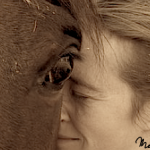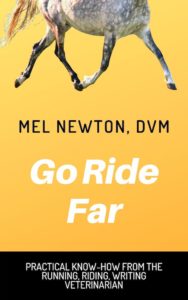Bone is Cool! And other ramblings
| February 21, 2012 | Posted by Melinda under Vet & Sports Medicine |
Can we just agree that my post yesterday was interesting and varied enough to count for a post today? And thus, I can mark off on my handy streak calendar that I blogged today and thus extending my current streak to 3 days….(my record since keeping track in January is 6 days in a row).
I didn’t think so.
My readers are demanding – not only for quality posts, but for quantity. And humor. And entertainment. And accuracy. And a bunch of stuff that makes me think I really should be paid – but of course, something that is this much fun can’t POSSIBLY make me $$ eh? (BTW – thank you to those of you that use my ad links – I earn ~$5/month and every bit helps. )
So….let’s do a bit of housekeeping and announcements today, and if you want something more substantial to entertain you with your morning coffee (lunch coffee? afternoon coffee? afternoon tea?) I’m sure you can find something on my blog roll or archive.
1. Did you know that you can subscribe to my blog in Kindle? And have my blog delivered daily right to your device? It comes with a 14 day free trial, and if you like it, it will only cost you 99 cents per month. Check out the link and give it a try. (yes, this was shameless self promotion)
2. Why bone is totally cool. Back when I was asking for research topics, AareneX asked me to post on the conditioning effects of bone versus muscle versus tendon. Of course, this spawned the tendon posts you saw earlier…..but let’s not forget how very cool bone is. (We are going to ignore muscle. Turns out it’s rather boring and I think everyone gets that when you stress muscle, it strengthens…..and having strong muscles is important to protect other structures. Big deal. Going onto something interesting….)
Bone, in many ways, is the complete opposite of tendon. When it heals, it is as strong as it used to be. It undergoes complete healing. After dealing with both soft tissue and and bone injuries, although bone may take a bit longer, I would MUCH rather deal with a bone injury than a soft tissue injury. (of course – this is a little different in horses – but I am speaking from a physiologic view).
The biggest concept that an endurance rider needs to care about is how bone adapts to an increased load and understand the time frame it occurs in.
Stress creates tiny stress fractures in the bone. This is a normal and lets the body know that it needs to send little bone eater cells to take out the stress fracture, and then send in the bone builder cells to rebuild the bone. You can’t make bone stronger until it’s replaced, because bone can sense what kind of load it’s under – and to replace bone, you have to remove the bone that is present, a little bit at a time, while rebuilding.
So – tiny little cracks because the bone is under an increased load, which are being replaced by stronger bone. These tiny little stress cracks are perfectly normal and not a concern unless……….
You overload the bone to the point where the bone building process can’t keep up with the amount of bone being compromised by the micro cracks. The bone eater cells are frantically eating up bone to get ride of the cracks and the bone builder cells are working furiously to put bone back into place – but they can only do it so fast.
Resorption (bone eaters) takes days to weeks, formation (bone builders) takes 3 months. During the gap between resorption and formation is a period of time that the bone is potentially weaker.
The build up of micro cracks can lead to a stress fracture. Stress fractures can lead to a complete fractures, like the perforation of a stamp. FYI – this is considered a “pathological fracture” as opposed to a acute or traumatic fracture, since the cause of the fracture wasn’t necessarily due to your decision to gallop down a stretch of load – the fracture was due to an underlying cause of overtraining and a build up of micro damage and stress fractures. BOOM. Broken leg, dead horse. BAD.
We want to cycle the remodeling process (old bone eaten, new bone built) because bone gets stronger and adapts to the load – as long as the work load is increased slowly and kept below the “failure line”. You don’t want to outrun your cycle of adaption, remodeling, and repair and slowly allow the bone to get stronger and stronger as it builds new and better bone.
Time frame for this process is around 6 months. Significant differences can be seen in the bones of horses in training for 6 months. The one year rule I hear tossed around may have come about because of having to adapt is several stages to keep below the fatigue line – so it may take about a year to get a horse fully adapted to your end goal of the activity.
It’s important to remember that bones adapt differently for different activities – the horse adapted to racing will not be bone adapted for hunter jumpers, endurance etc. The bones that adapt are different (different strain on different bones for different activity), and the direction of the principle stress is a specific adaptation for that activity.
Radiographs can pick up these adaptations, and even though it seems like the difference (in thickness and density) of bone is significant when looking side by side on the slide, I’m not sure you could reliably measure a cannon bone and determine how much bone is being laid down for a horse in training.
For a horse in work, it maintains it’s bone mass very nicely. Unlike tendons, if you continue to regularly ride your older competing horse, you probably don’t need to obsess about the bone. However, bone mass is lost in the adult animal (~1% per year in horses I think) because bone eater cells eat a little more than the bone builder cells replace unless the bone is experiencing load and stress. Stress is absolutely needed to maintain an appropriate amount of bone!
In summary – slow down, let the adaptive process catch up, do NOT take the horse off work. When starting endurance, increase the amount of work being done over the course of a year.
3. My favorite things. Technology and programs that I have found that make my life easier and generally more wonderful:
Sleep cycle alarm (itouch/iphone app) , coupled with the dawn alarm clock – see amazon – although for a $100 bucks it hasn’t held up well enough that I can whole-heartedly recommend it
Streak calendar (itouch/iphone app)
Fitness apps – (itouch/iphone apps) amazing! For a small fee I found a really nice yoga app that I really like. It’s like being in a class but much much cheaper and I can do it on my own terms. I have completely ignored this sector of apps, because I’ve been focused on free ones – but there are some really nice fittness apps that have made my life a little easier)
Journler – a mac software download that I now use to organize and compose my blog posts.
Growly notes update – just wanted to let you’all know how much I STILL LOVE growly. I use it for all my note taking in class now. It’s so functional and versatile.
4. Vet interviews for Davis start tomorrow. It’s a nice reminder of how much I wanted this a year ago, and to remind myself how very darn lucky I get to be here, doing and learning one of the coolest professions there is. Yes, there’s been sacrifices and my life isn’t as easy either emotionally, mentally, or physically as it was a year or two ago. But it’s been worth it and I have no regrets.












Thanks so much, Mel. Pronto has been in training for 5 months and done one LD now – so I’m constantly debating how long to keep him doing LDs or move him up. Very cautious of leg strain – appreciate all this great info…! Jenna
Another great blog, Mel. So am I reading this right that we don’t need to worry about rebuilding bone density if the horse was out of work (not injured though) for a few months? I’m guessing that the time needed to rebuild muscle will take care of the small amount of bone loss that might have occurred during the rest?
That was my take away message – a couple of months probably isn’t a problem for the bone, if there was sufficient base that the bone remodeling process was adapted tot he work. I think a horse put into work for less than a year, then off few a few months still needs some work done on the “bone conditioning”, but a horse that’s done a year or two of work can stand to be off without too much risk.
***this is me talking as a first year vet student and endurance rider – please no one sue me!
Yoga app – it’s just glled “yoga” and it’s by Viaden. I also have “fitness 4-in-1” because I like the little 100 pushup routine and have doing it for a number years on paper and it’s just nice to have it in one place.
AareneX – that’s so funny! I know that as a child I didn’t like how I tended to have toes that pointed outwards when I walked, so I made an effort to point them forwards, or even toed in a little. I notice that I have some bone shape changes in my legs because of it (I think).
Bone physiology/biology seemed straightforward and common sense to me. More so than the tendon stuff. Probably because it’s stuff that we knew from the human side for quite some time. And we have human sports that illustrate these concepts perfectly – the swimmer versus the runner for example, and we regularly do bone density tests on humans (females at least).
Such good stuff, Mel. I’m still hacking my way through the tendon stuff, so I’ve got “bone” stuff next.
I didn’t realize until a few years ago that bone remodelling doesn’t just happen as a result of injury (I know, I can be terribly dense)…my doctor noticed how bow-legged I’ve become! Ahhh, yes, I think that if we measured the shape of my lower body we would find that it pretty closely resembles the shape of a certain horse’s barrel!
Very cool stuff about bones!
What’s the yoga app name?
Do yall get to talk to prospective students, like undergrads talk to high schoolers at some colleges?
Where’s the humor? 🙁